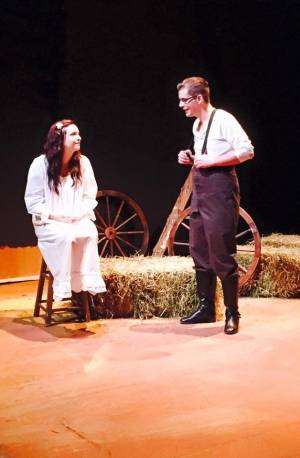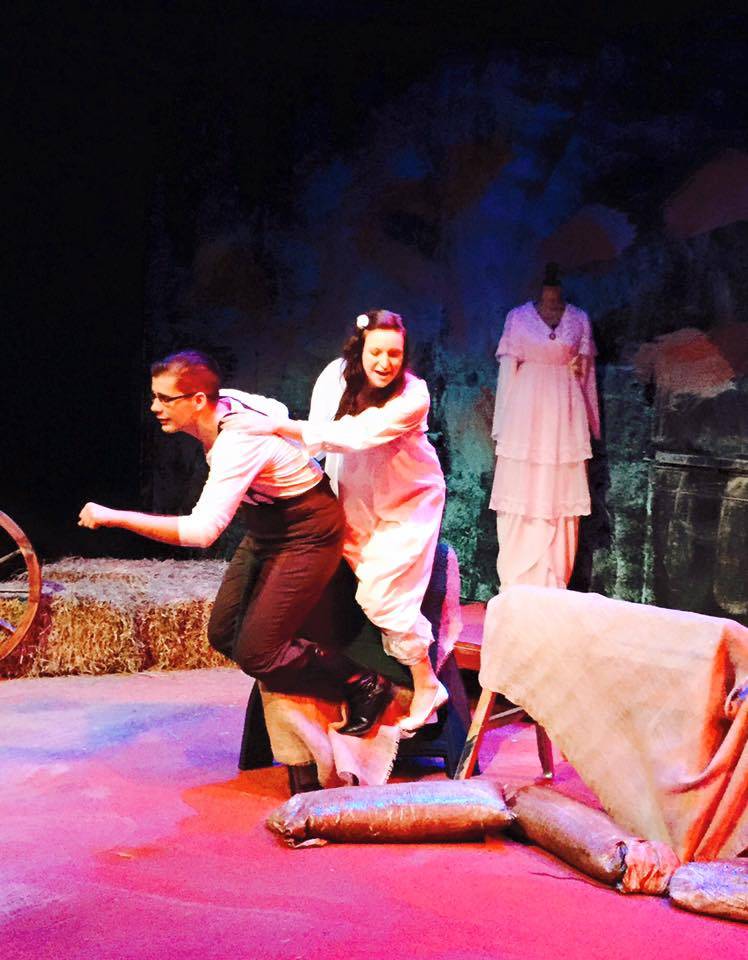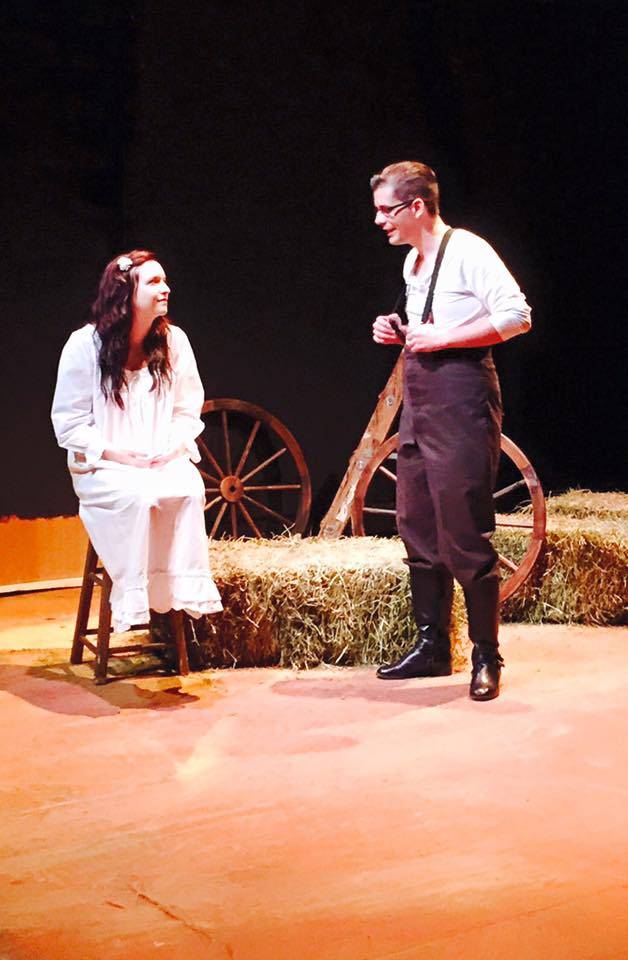 One hundred years have passed since the first World War, but the effect of its brutality and scale can stil be felt to this day. Stephen Massicotte’s play, Mary’s Wedding tells the story of two lovers separated by the war.
One hundred years have passed since the first World War, but the effect of its brutality and scale can stil be felt to this day. Stephen Massicotte’s play, Mary’s Wedding tells the story of two lovers separated by the war.
From the press release:
The action takes place in a dream that Mary has on the night before her marriage to her young soldier, Charlie. The dream story takes us from the prairies of Alberta to war-bound troop ships to the trenches of France and back again before Mary can awaken on the morning of her wedding day and prepare to set forth on the next stage of her journey.
Nina corresponded with director Timothy O’Neal about this romantic, haunting play.
———
SP: What about the script made you want to direct this play?
Timothy O’Neal:I got the opportunity to work a little on a production of the play at a theatre in Connecticut and the impact I had just reading it the first time made it a piece close to me. Also having had the opportunity to actually chat with Stephen during that time about both this piece and his others as well compels me to want to get his name out there as well; I feel he’s a very talented playwright full of wonderful ideas. In my desire to see his recognition grow, I was pleasantly surprised to hear a week after the Station announced it for their summer season, a U of I student-run organization has the play on their Fall 2015 semester season. Don’t be afraid of seeing a piece more than once, either. This being a play set in a dreamscape makes it tremendously easy for the productions to be entirely different in their vision, tack and scope, so you’ll never see the same production twice.
 SP: Even though there are three characters, the script only calls for two. What can you tell me about your cast?
SP: Even though there are three characters, the script only calls for two. What can you tell me about your cast?
O’Neal: Being in a college town like this, it’s nice to come across a play like this where I don’t have to fudge on age in either direction. Evan Seggebruch and Chey Drew are two wonderful Parkland students full of passion and energy and that youthful innocence that Mary and Charlie both hold in the script. It’s great to work with newer, fresher talents sometimes — it gives your own ideas different views than before. Not to say I don’t appreciate working with more mature actors, but it’s fun to mix the pot a bit.
SP: Playwright Stephen Massicotte has discussed his distaste for war. How did your views about war impact your production of his play?
O’Neal: Without going to deeply into my own personal feelings on war because I wouldn’t want that to paint any particular sheen on my concepts and ideas on this production, World War I has always been in my eyes such a pointless war all caused by an outdated system of alliances where countries were obligated to fight. While Massicotte deals with the horrors of the statistical body count of war in a non-preaching way, he also reminds us that this war was a turning point for tactics. Standing in lines and shooting quickly became a thing of the past with the awful introductions of the machine gun and chemical warfare. At its core, though, it is a romance story and the awful thing that separates these two lovers just happens to be an ocean and war.
SP: The action of the play takes place in a dream. Did this simplify or complicate the staging the play?
O’Neal: Well, it’s a little from column A and some from B. It saves from being so worried about realism (How do you get real horses in? Does he need to have a real period gun?) but then it forces you to think more about where boundaries are in this dream. Should anything resemble anything real? Do we need to have areas of the stage to place actors or is it more a fluid world where the actors maybe build what they need when they need it? So while not being bogged down in realism (and I’m not knocking it; I love realism as much as the next director), you’re suddenly forced to draw your own rules. At least for this show Massicotte has the situations and characters rooted in a natural world so there aren’t any daughters of Hindu god Indra exploring humanities’ problems or other such grandiose ideas. So many dream plays (such as August Strindberg’s A Dream Play) deal with the expressionistic and symbolic world of dreams. Mary’s Wedding, though, outside of messing around with the time table and believing the characters are in two places at once, sticks with normalcy in telling the story.
SP: In 2008, the Pacific Opera in Victoria, Canada commissioned a composer to turn Mary’s Wedding into an opera. The composer said that as he read the play, tunes would pop into his head. Does the language of the play seem musical to you?
O’Neal: For me, most plays have a musical feel to them. At the very least, the ones that are well-written and interesting. The language of a play should almost sing off the page. That doesn’t mean that all plays sound pretty, though. Discordance most certainly has its place in drama as well and there are certainly melodious and dissonant parts to Mary’s Wedding too.
Mary’s Wedding runs July 2-18 at the Station Theatre, with no performance on July 4th. For reservations call 384-4000 or visit www.stationtheatre.com.
Photos courtesy of Tom Schnarre.








